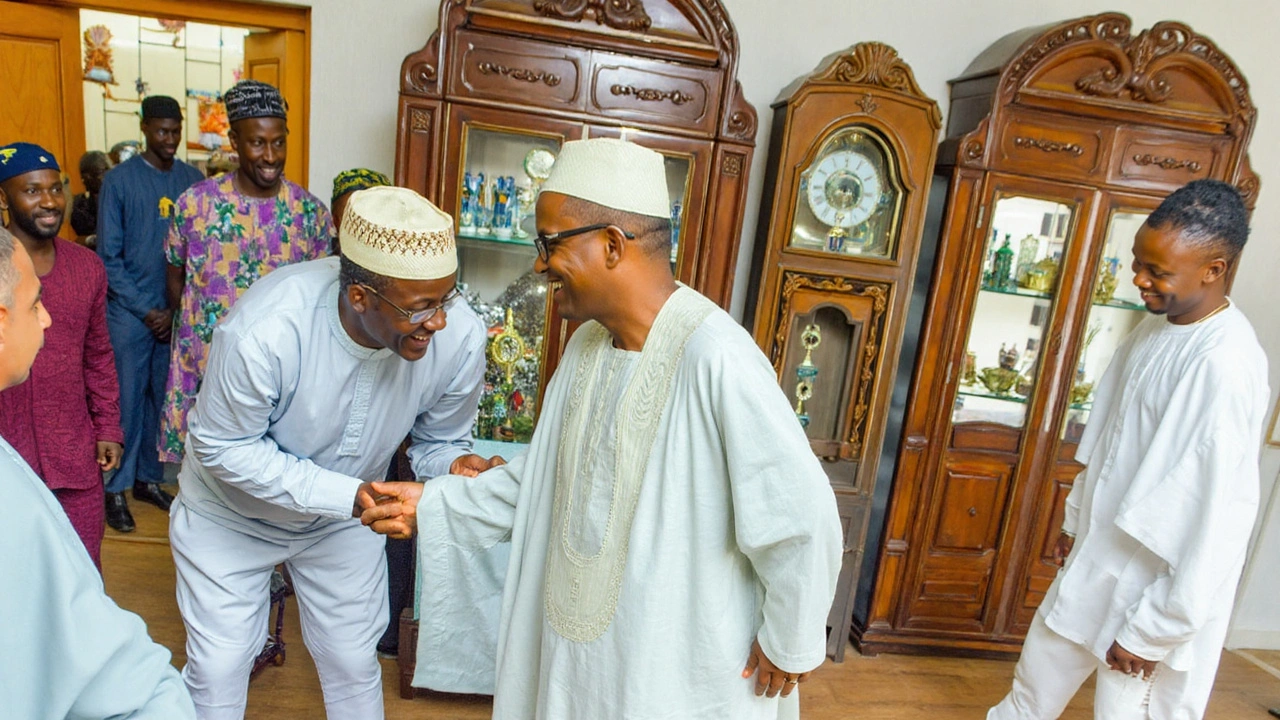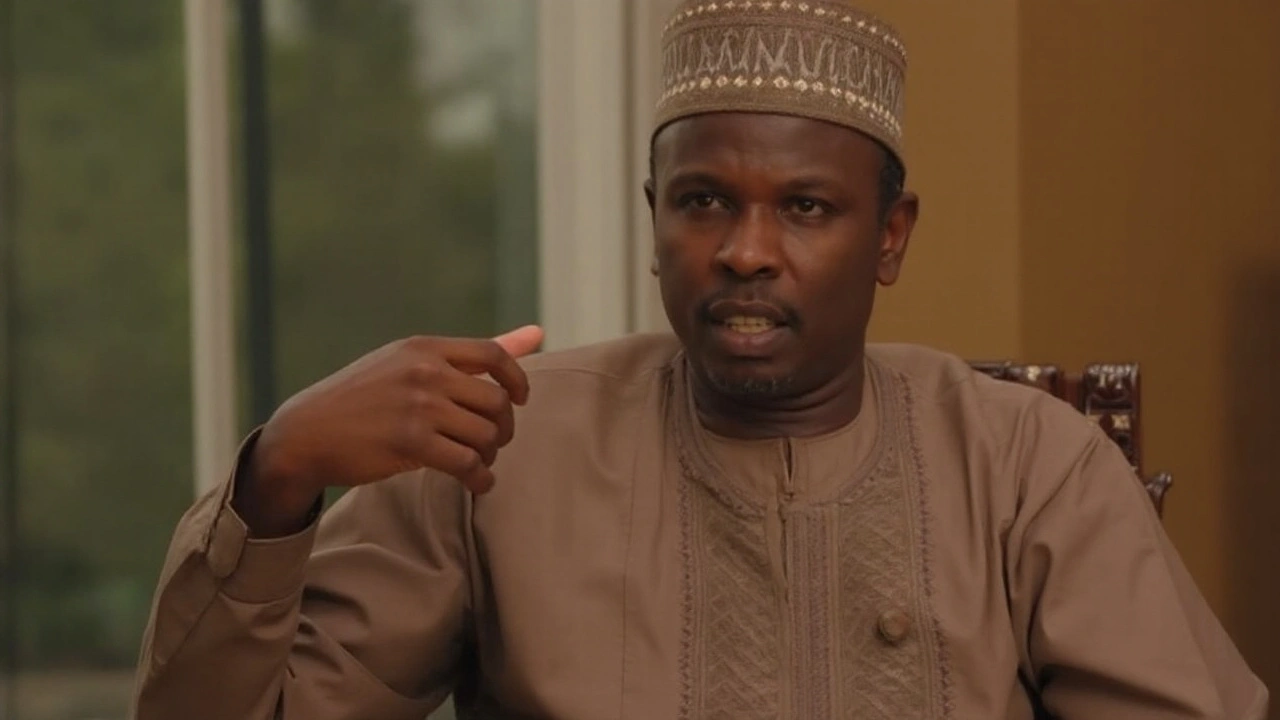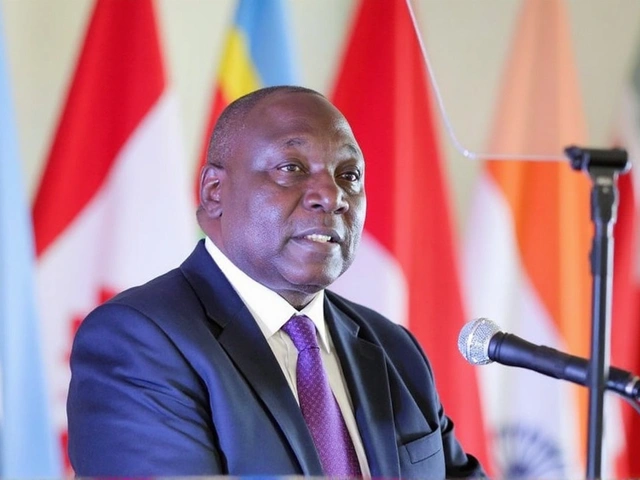A Royal Pledge Redefines Tradition
When Rashidi Ladoja steps onto the throne as the 44th Olubadan of Ibadanland, he won’t be swapping his chalk for a scepter. The former deputy governor announced that he will resume teaching mathematics at a local secondary school, a promise that has stunned both monarchists and educators alike.
Ladoja’s background makes the vow less surprising than it first appears. Before entering politics, he earned a degree in mathematics and spent several years in the classroom, a stint he describes as his "first calling." After decades of public service, he now sees his upcoming coronation not as a retirement from active civic work but as a new platform to champion learning.
Principal Fasasi of the school where Ladoja will teach praised the decision, noting that "having a monarch in the classroom sends a powerful message that education transcends status." Parents, too, have voiced excitement, citing the chance for their children to learn under the guidance of a leader who understands both academic rigour and community challenges.

Implications for Education and Leadership
The pledge arrives at a moment when Nigeria grapples with low literacy rates and teacher shortages, especially in the southwest. By committing to a regular teaching schedule, Ladoja positions himself as a bridge between traditional authority and modern development agendas.
Analysts suggest several ripple effects:
- Other traditional rulers may feel encouraged to take active roles in local schools, reversing a trend of ceremonial disengagement.
- The government could leverage the monarch's influence to promote STEM initiatives, aligning cultural prestige with national education goals.
- Students gain a unique mentor who can blend moral guidance with academic instruction, potentially boosting enrolment and performance.
Critics caution that juggling royal duties and teaching responsibilities will be demanding. The Olubadan palace traditionally oversees multiple districts, mediates disputes, and presides over cultural festivals. Balancing these obligations with a full‑time teaching schedule will require careful delegation and perhaps a re‑imagining of what royal service looks like in the 21st century.
Nevertheless, the enthusiasm from civil society groups suggests a growing appetite for leaders who walk the talk. If Ladoja manages to keep his classroom promise, he could set a precedent that redefines the role of traditional institutions in contemporary Nigerian life.




Power is a variable, not a constant. When a monarch picks up a chalk, the equation of authority changes. The classroom becomes a council, the lesson a decree. In this balance, society finds a new derivative of hope.
The decision by the new Olubadan to return to a classroom is more than a symbolic gesture; it directly addresses the chronic teacher shortages that have plagued Nigeria's education system for decades. According to UNESCO data, sub‑Saharan Africa suffers from the lowest student‑teacher ratios, often exceeding 1:80 in rural areas, which drags down literacy rates and hampers economic development. By stepping into a secondary school, Rashidi Ladoja not only raises his personal profile but also provides a tangible model for other traditional leaders to follow. This initiative can ignite a cascade effect where monarchs leverage their cultural capital to attract resources, volunteer educators, and philanthropic partnerships. The ripple is measurable: increased enrollment, improved exam scores, and a shift in community attitudes toward education as a shared responsibility. Moreover, the presence of a high‑profile figure in the classroom can motivate students who might otherwise feel disenfranchised, giving them a sense that their aspirations are validated at the highest levels. It also offers a platform for policy advocacy, allowing the Olubadan to speak directly to government officials about funding gaps, curriculum reforms, and infrastructure needs. Critics argue that juggling royal duties with teaching is impractical, yet history shows that multi‑role leadership can thrive when supported by effective delegation. The palace can appoint trusted lieutenants to manage ceremonial tasks, freeing Ladoja to maintain a consistent teaching schedule. In addition, the school can benefit from the monarch's network, securing donations for textbooks, lab equipment, and extracurricular programs. This synergy aligns with the Sustainable Development Goal 4, which emphasizes inclusive and equitable quality education. By integrating traditional authority with modern pedagogy, Nigeria can bridge the divide between heritage and progress. Scholars note that when community leaders actively engage in education, dropout rates decline, especially among girls. The Olubadan’s involvement may therefore have gender‑positive outcomes as well. Ultimately, the success of this experiment will depend on transparent reporting, community feedback, and the willingness of other stakeholders to replicate the model. If executed well, it could redefine the role of royalty in the 21st century, turning ceremonial symbolism into actionable development.
It's realy inspirin to see a king go back to teaching, it shows dat leadership can be hands‑on not just sit on a throne. The kids will get a chance to learn from someone who truly cares bout education and culture. I think more traditional rulers should follow suit, it would bring big change to our commnunities. Plus, it sends a message that knowledge is power no matter who you are.
This is wonderful news! It shows that even big leaders can be humble and help kids learn. I hope the students feel proud and work hard together.
One must acknowledge the gravitas of a monarch assuming a pedagogic role within a secondary institution. Such a gesture, albeit unconventional, may serve to recalibrate societal expectations regarding aristocratic obligations. The administration should, however, ensure that the royal duties do not compromise the academic rigour expected of the curriculum. A balanced approach will be essential to preserve both tradition and scholastic excellence.
While your points are noted, the reality is that the Olubadan's involvement will energize the entire community 🌟. We cannot afford half‑measures; the palace must fully back this educational venture.
Sounds like a game changer
Definitely, this could inspire other leaders to take active roles in classrooms and boost student morale.
The initiative undertaken by the Olubadan exemplifies a commendable synthesis of indigenous authority and modern educational imperatives, a model that the nation ought to emulate. It underscores the imperative for our traditional institutions to act as custodians of progress, thereby reinforcing national cohesion. By integrating regal stature with academic mentorship, the state can harness cultural pride to advance its developmental agenda. Such collaborative efforts will undeniably fortify our collective identity and propel Nigeria toward a more enlightened future.